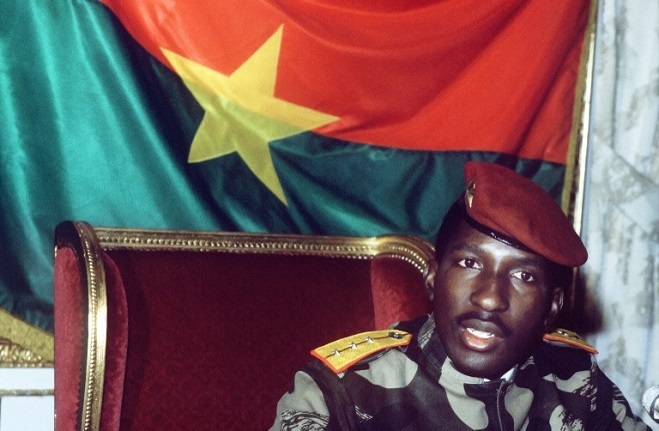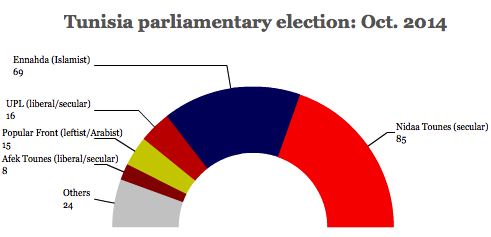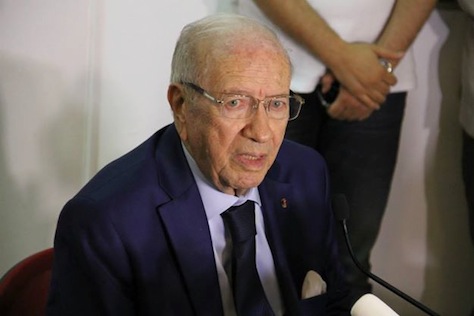 Photo credit to Pascal George/AFP.
Photo credit to Pascal George/AFP.
Only seven world leaders have held office longer than Burkina Faso’s president Blaise Compaoré. His place on that list, however, may be coming to a swift end today, amid chaotic protests in the capital city of Ouagadougou, when protesters set the parliament on fire.![]()
For the entirety of his 27-year rule in the Sahelian country, the specter of his predecessor, Thomas Sankara, hung over his reign, possibly now more than ever — the equatorial Banquo to Compaoré’s Macbeth.
Sankara took power, like every single one of his predecessors, in a coup. He did so, in 1983, with Compaoré’s help, and with the charisma of a post-independence African ‘Che’ Guevara, promising to bring an honest and socialist government to his country, which he renamed ‘Burkina Faso,’ or ‘the land of the honest people,’ instead of the more colonial Upper Volta (‘Haute-Volta‘).
Though Sankara was hardly democratic, he enjoyed a groundswell of genuine support, and his brutal assassination just four years later (for which most analysts blame Compaoré) ended a burst of dynamic governance through which Sankara attempted nothing less than a renaissance for Burkina Faso. With mixed roots among both the Mossi and Fulani ethnic groups, Sankara personified the two dominant peoples that comprise a majority of Burkina Faso’s population.
In addition to giving the country a new name and a new national anthem (Sankara, a guitar player, wrote it himself), he turned to an ambitious program of social welfare initiatives. He vaccinated the country’s children against diseases like yellow fever, started a national literacy campaign, took steps to reverse desertification through ‘green’ policies, redistributed land for greater crop production and, in a nod to women’s rights, outlawed female genital mutilation, polygamy and forced marriages, problems that still plague many sub-Saharan Africa countries today. He was also the first African leader to recognize publicly the health threat that HIV/AIDS could cause. Two decades later, by contrast, South African president Thabo Mbeki was still denying the scientific link between HIV and AIDS.
Known for his personal integrity, he sold the government’s fleet of Mercedes and replaced them with much-cheaper Renaults. He opposed foreign aid, but simultaneously demanded debt forgiveness from France and other Western countries.
To be fair, Sankara was no saint. Continue reading Sankara ghost hangs over Burkina Faso turmoil


